Compared: 2024 Hyundai Tucson vs. 2024 Honda CR-V
Hyundai, with its value-play compact crossover, tries to catch up to Honda.
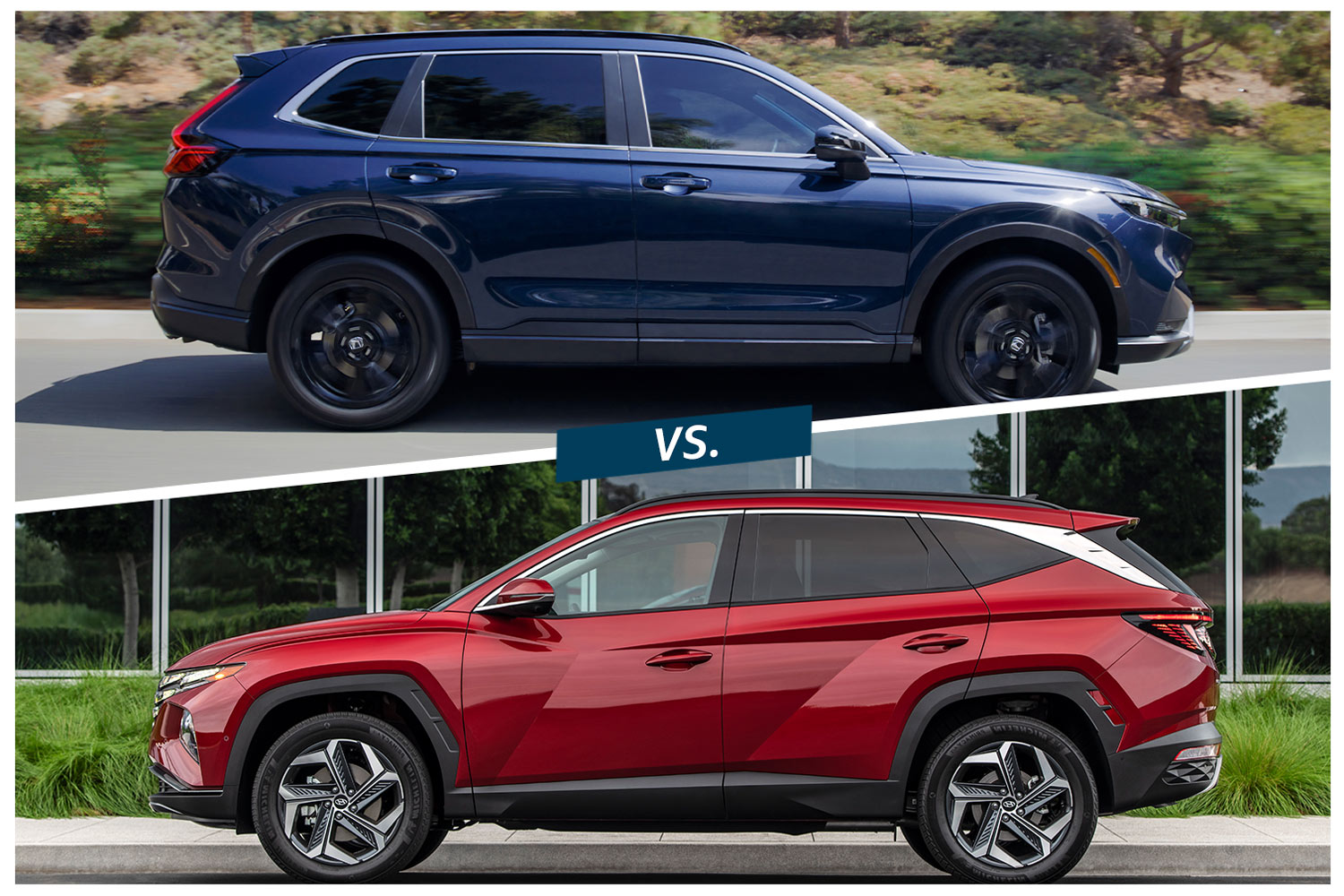 Honda | Hyundai
Honda | Hyundai
Article QuickTakes:
In the popular compact-crossover segment, the Hyundai Tucson trails the Honda CR-V in sales, even though the Hyundai has more powertrain options, a lower starting price, and more standard equipment.
The differences between the two are so slight that subjective desires such as style, handling, and brand loyalty could easily swing the decision to the CR-V. Here we explore how the two models compare in three categories.
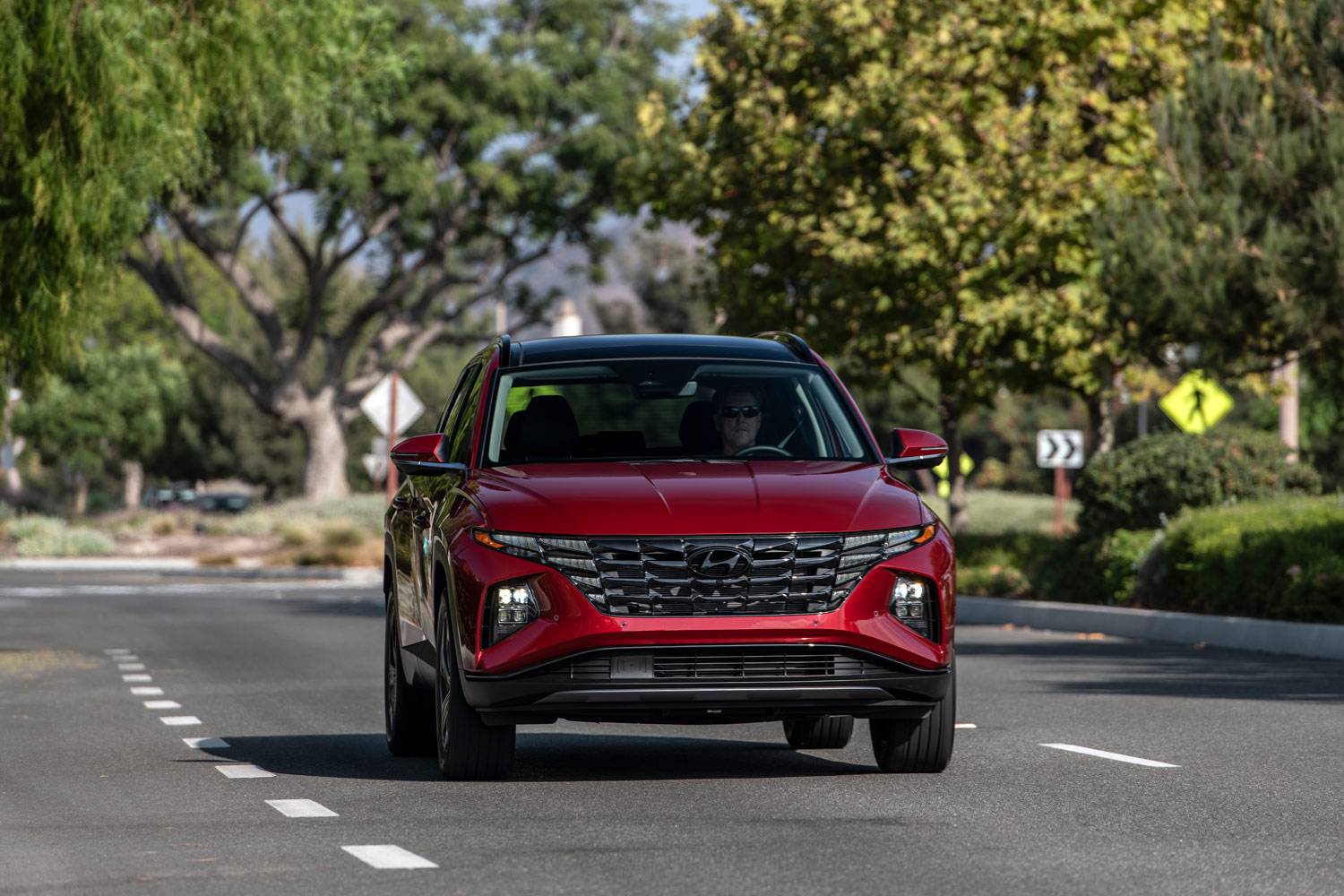 Hyundai
Hyundai
Hyundai Tucson vs. Honda CR-V: Price
For 2024, the Hyundai Tucson starts at around $29,000, undercutting the CR-V's lowest price by about $2,000. That's for the gas-only models. The Tucson features a four-cylinder making 187 horsepower, while the CR-V boasts a 190-hp turbo four. You can add all-wheel drive to either for about $1,500.
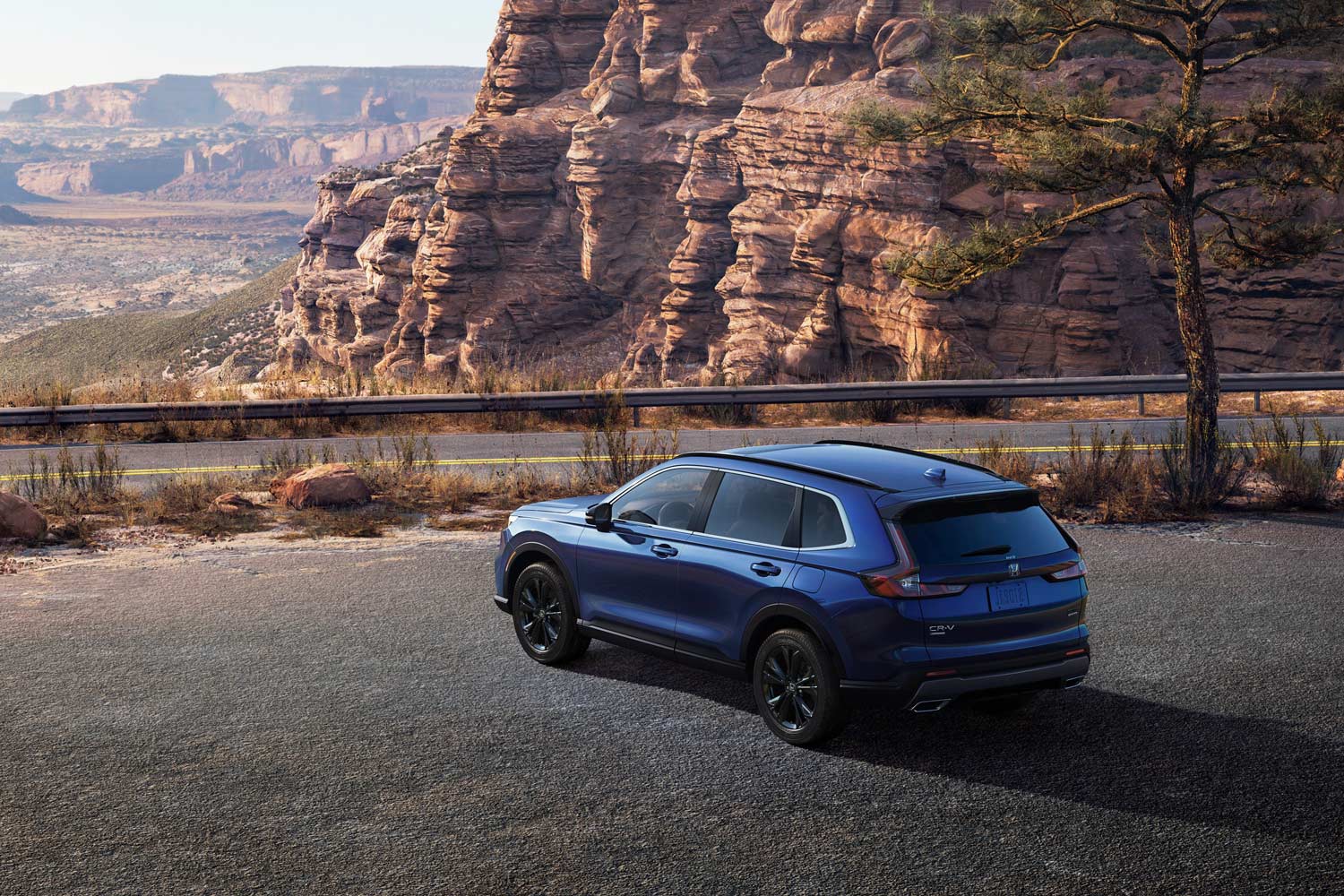 Honda
Honda
Beyond that, both lineups offer electrified models. The base price for a 226-hp Tucson Hybrid is $34,000, which is about $1,000 less than the entry 204-hp CR-V Hybrid. Hyundai provides all-wheel drive standard on its hybrids, whereas Honda charges extra for it on all but the CR-V's top trim level.
Hyundai also offers something Honda doesn't: a plug-in hybrid. It costs about $40,000, makes 261 horsepower, and can drive up to 33 miles on electricity alone.
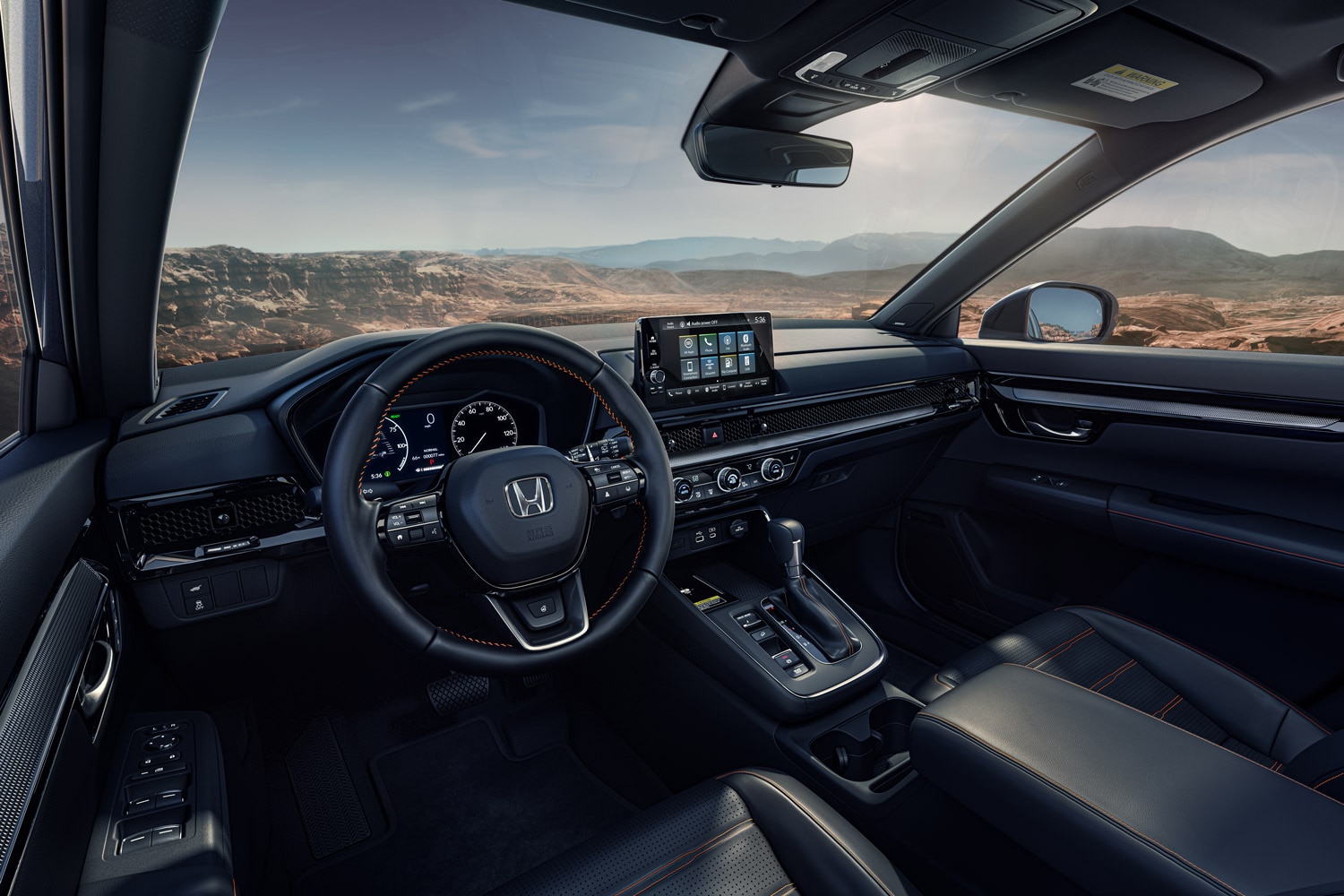 Honda
Honda
Hyundai Tucson vs. Honda CR-V: Features
The CR-V's lower-level models come with a 7.0-inch touchscreen and wired Apple CarPlay and Android Auto connectivity while higher trims receive a 9.0-inch unit with wireless smartphone mirroring. Hyundai's base 8.0-inch unit allows owners to connect to these interfaces without a cable, while the 10.3-inch display found in the highest gas-only model and all of the hybrid trims requires a wired connection.
Both compact SUVs come with an array of standard driver-assistance features such as lane-keeping assist, lane-departure warning, forward-collision mitigation, and adaptive cruise control. You'll find blind-spot monitoring on all Tucsons, but the base CR-V does without it.
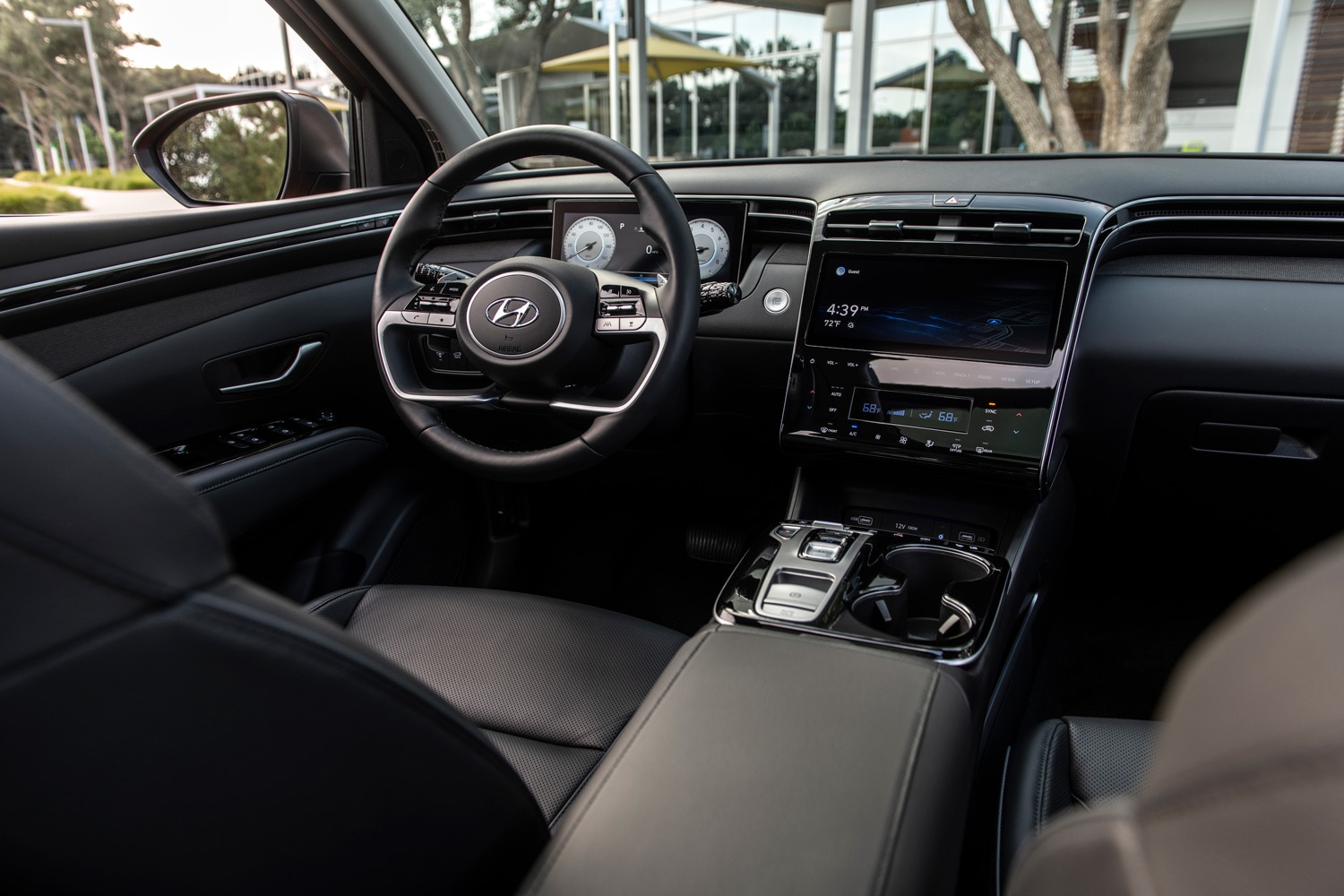 Hyundai
Hyundai
The Tucson offers 108 cubic-feet of passenger volume and 39 cu-ft of cargo space to the Honda's 106 and 41 cu-ft of cargo capacity. All the hybrid models offer slightly less interior volume due to their battery packs, but Honda seems to take away space from the passenger compartment while Hyundai cuts into the cargo hold.
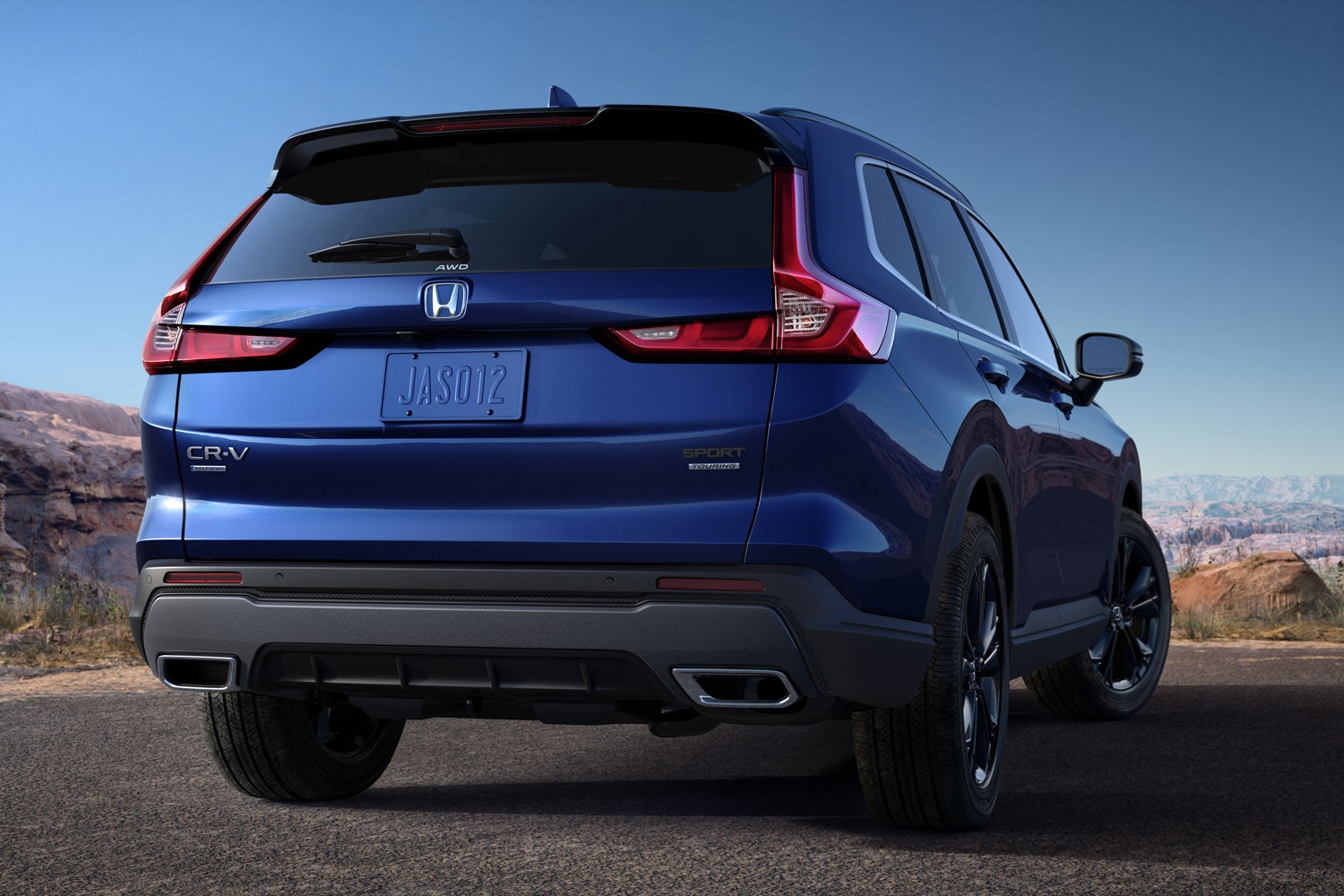 Honda
Honda
Hyundai Tucson vs. Honda CR-V: Fuel Economy
The entry-level CR-V is good for an average 30 mpg, while those with the hybrid setup see 40 mpg. The gas-only Tucson and the Tucson Hybrid come in a little below that, with fuel-economy ratings of 28 and 38 mpg, respectively.
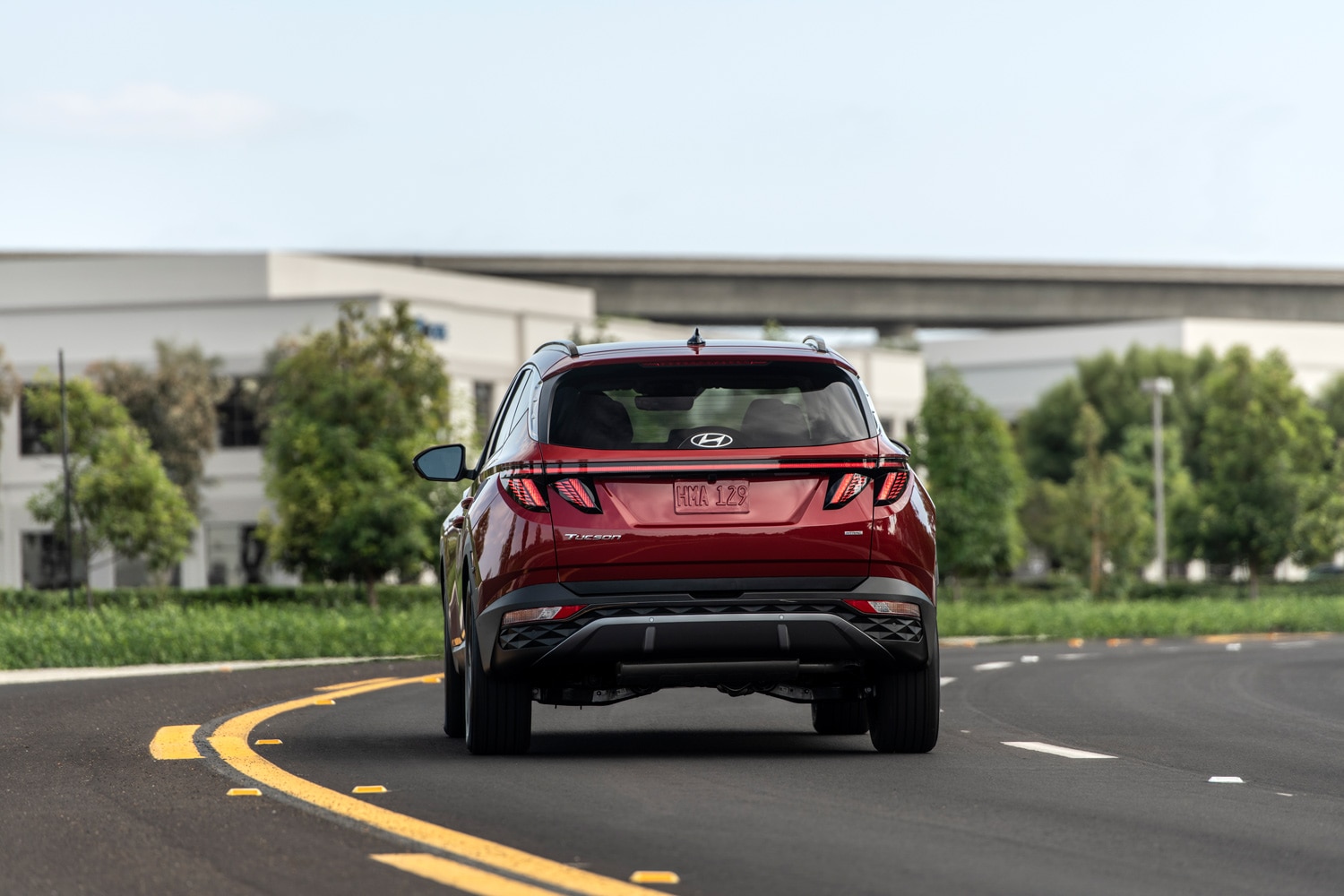 Hyundai
Hyundai
The plug-in hybrid Tucson, with its ability to travel up to 33 miles on electric power alone, can top the CR-V's efficiency. It returns 80 MPGe on a full battery and 35 mpg when relying solely on gasoline.
All vehicle pricing includes MSRP plus destination charges (set at the time of publication) and will be rounded to the nearest thousand.



